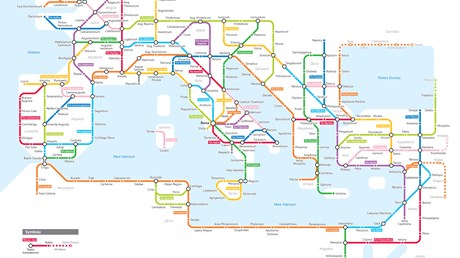The ‘Apostle to the Gentiles’ had an entrepreneurial spirit that helped him spread the Gospel.

To say that we live in a connected and networked world is old news. When an immigrant from Mexico cooks my favorite Levantine dish (I happen to be Korean American) at a bodega owned by a second-generation Jordanian, the world just got smaller and more connected. Cultures collide, and the outcome is messy and beautiful. It is difficult to see where one culture ends and another begins. Is the hot sauce in the baba ghanoush a Mexican touch? No one knows, not even the server. Like a good sketch, there is a lot of cross-hatching, and the final product is greater than the parts. The keenest observers of society are those who are incentivized to see—entrepreneurs, financial institutions, and missionaries.
The world has plenty of the former, and they can sniff opportunities years before others. If we tweak Horace’s famous words and monetize it, carpe pecuniam (“seize the money”) might be their motto. In a world where mammon is enthroned, who can fault them? They are just better devotees.
The church, if she is honest, is far slower in analyzing shifts in culture. Part of the problem is, undoubtedly, owing to the church’s inherent traditionalism, not necessarily a bad quality in a world obsessed with novelty. However, if God has created these shifts in culture and networks for the church to accomplish her mission, then failing to see them is to miss God’s design. More importantly, the church might miss open doors. To provoke our imaginations, the apostle Paul offers an example of what can be done by those who use networks in a selfless way.
Paul’s Network
Paul was a man of his times. He was a Jew, who lived in a Hellenized world under the rule of the Roman Empire. He could expound the Scriptures …
Source: Christianity Today Most Read